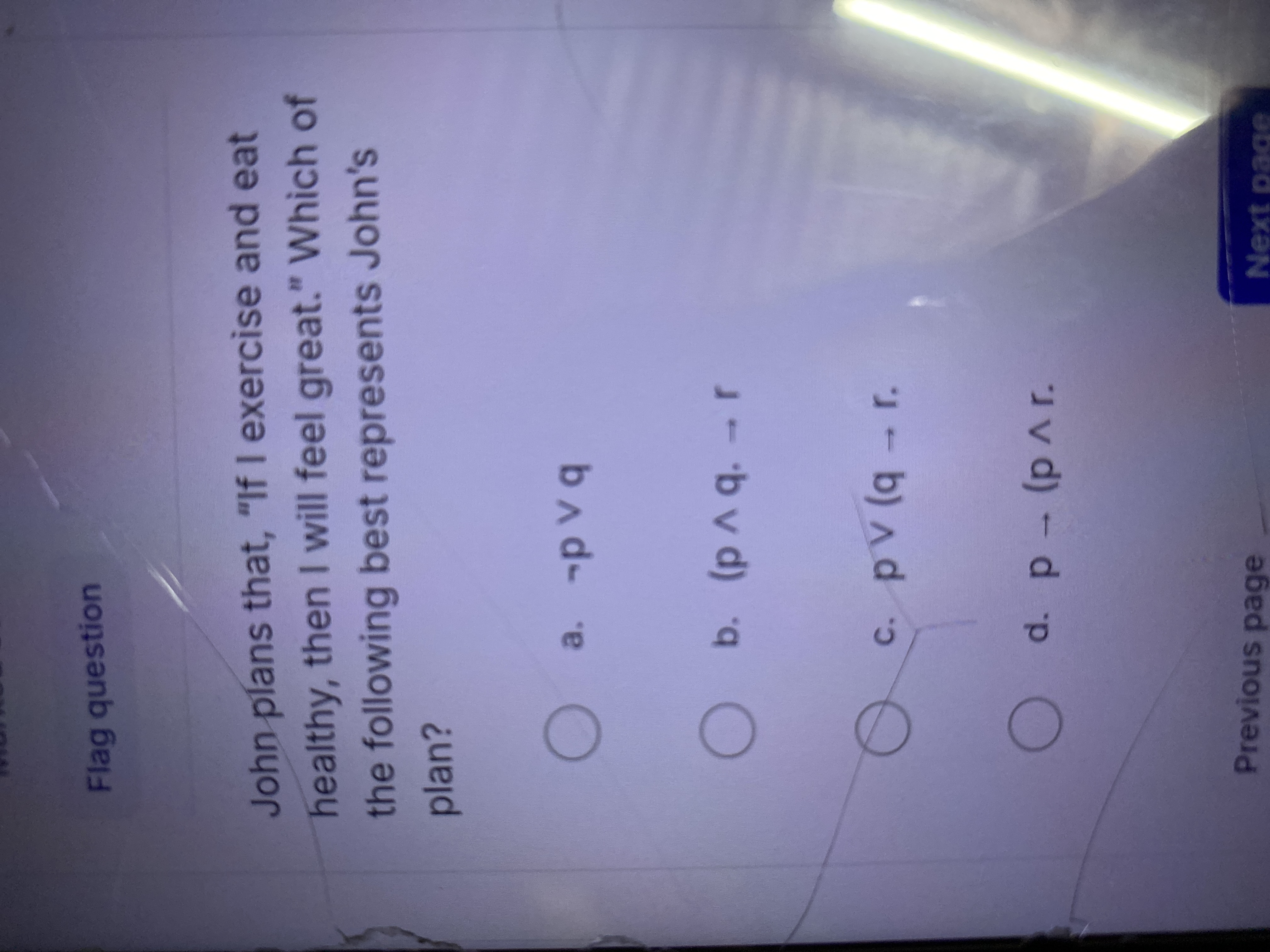Which of the following best represents John's plan: 'If I exercise and eat healthy, then I will feel great'?

Understand the Problem
The question is asking which logical expression best represents John's plan about exercising, eating healthy, and feeling great. It involves understanding symbolic logic and the implications of 'if' statements.
Answer
The correct logical expression is \( (p \land q) \rightarrow r \).
Answer for screen readers
The best representation of John's plan is ( (p \land q) \rightarrow r ).
Steps to Solve
- Identify the components of the statement
John's plan states: "If I exercise and eat healthy, then I will feel great."
Let:
- ( p ) = "I exercise"
- ( q ) = "I eat healthy"
- ( r ) = "I feel great"
- Translate the conditional statement
The structure is an "if-then" statement: "If ( p ) and ( q ), then ( r )."
In symbolic logic, this can be expressed as:
$$ (p \land q) \rightarrow r $$
- Identify the correct expression
Now, let's compare this to the provided options:
- Option a: ( \neg p \lor q ) (Not exercising or eating healthy)
- Option b: ( (p \land q) \rightarrow r ) (This matches our translation)
- Option c: ( p \lor (q \rightarrow r) ) (This does not represent the original statement)
- Option d: ( p \rightarrow (p \land r) ) (This is also not correct)
The correct representation is option b.
The best representation of John's plan is ( (p \land q) \rightarrow r ).
More Information
This expression explains that exercising and eating healthy together will lead to feeling great. In logical terms, it specifies a condition under which John will feel great, aligning with the common structure of implications in propositional logic.
Tips
- Misinterpreting the logical structure: Students often confuse the structure of "and" versus "or" in logical expressions.
- Forgetting the conditional format: Some may overlook the conditional "if-then" aspect, leading to incorrect symbol usage.